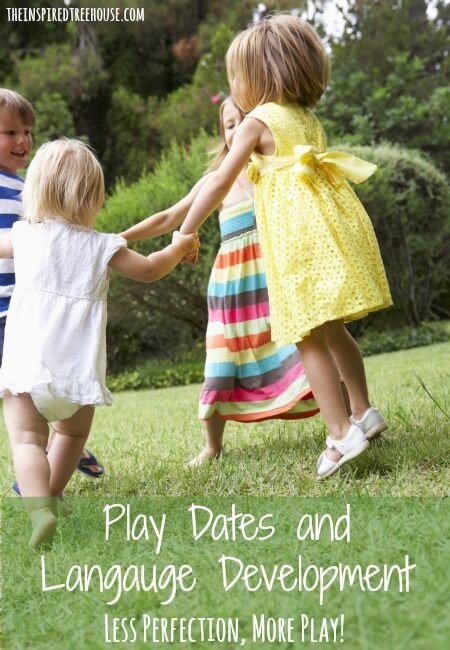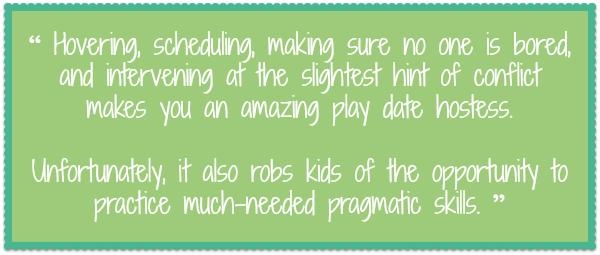Pragmatic language, or the social use of language, is an often-overlooked aspect of speech and language development that can help determine your child’s ability to make friends and successfully interact with others.

Maybe you know a child who stands too close, talks too loud, doesn’t understand when others are done talking or makes random remarks with no back story. He may have a huge vocabulary and clear speech and he may use long, complex sentences – yet he is not communicating effectively. These behaviors indicate that the child is struggling with pragmatic language skills.
According to the American Speech-Language-Hearing Association (ASHA), pragmatics involves using language for different purposes, changing language according to the listener or situation, and following rules for conversations and storytelling.
Pragmatics, like other skills, requires practice. Direct teaching of social skills in a classroom, home or clinic setting is valuable, but needs to be paired with real-world interactions to be effective and functional.
The best ways for kids to practice this set of skills is to interact with other people, preferably other children, in an open-ended and unstructured way. What does that mean? They have to be allowed to play!
I have been to many play dates (and admittedly hosted quite a few, too) where well-intentioned parents provided crafts, snack, and even educational videos to fill the 2 hours of “play” time. Neither parent nor child could truly relax as we hovered around gently reminding: “Use your manners.” “Gentle hands.” “Be careful.” “Don’t touch that.” “Why don’t you show them your trucks?” “Let’s color pictures.” “No climbing!” “Share your toys.”
Whew! After a play date like that, everyone needs a nap!

Hovering, tightly scheduling, making sure that no one is bored and intervening at the slightest hint of conflict makes you an amazing hostess. Unfortunately, it also robs your children and their friends of the opportunity to practice these much-needed pragmatic skills.
Free play allows children to choose what and how they play without structure or adult-imposed rules. It’s simple, and only requires time and space.
Consider the following two play date scenarios.
The Structured Play Date
- Parent determines what comes next
- Adults teach kids to make a craft or do an activity
- Children report conflicts to parents and parents help solve the problems
- Children are entertained constantly, with no downtime
The “Free Play” Play Date
- Children choose activities, materials and rules of the games
- Children create from their own imaginations, not Pinterest-perfect examples
- Children help regulate one another’s behavior by resolving their own conflicts (sharing, cheating, turn-taking).
- Children use cognitive (planning, organizing and initiating) to create their own imaginative worlds in play
One of these play dates helps your child become resilient – developing social language, cognition, and problem-solving skills. The other teaches them to seek adult approval and direction for every choice, decision and conflict (and totally exhausts you and the kids!).
A growing body of research shows that free play helps build pragmatic skills. And this is great news! Not only is it an easy way to help your child develop much-needed pragmatic skills but it also takes some of the pressure off of you!
So the next time you’re tempted to be the “cruise director,” step back, chat with the other parents, relax, and allow your child to practice, practice, practice those pragmatic skills simply by letting them play!
Check out Social Skills for Kids , an awesome resource packed with more than 75 fun and engaging games and activities for building relationships, social problem solving skills, and communication!
Rebecca Bowen
Latest posts by Rebecca Bowen (see all)
- THE ULTIMATE SENSORY EXPERIENCE FOR KIDS - March 18, 2016
- STUTTERING: WHEN TO WORRY AND HOW TO HELP - November 8, 2015
- SOCIAL SKILLS: 5 TIPS TO HELP SHY KIDS MAKE FRIENDS - September 30, 2015

[…] || A little something extra to trade or share with a friend! Here’s a great way to encourage some social skill building in the cafeteria! If you pack something that’s designated just for sharing or trading, kids […]